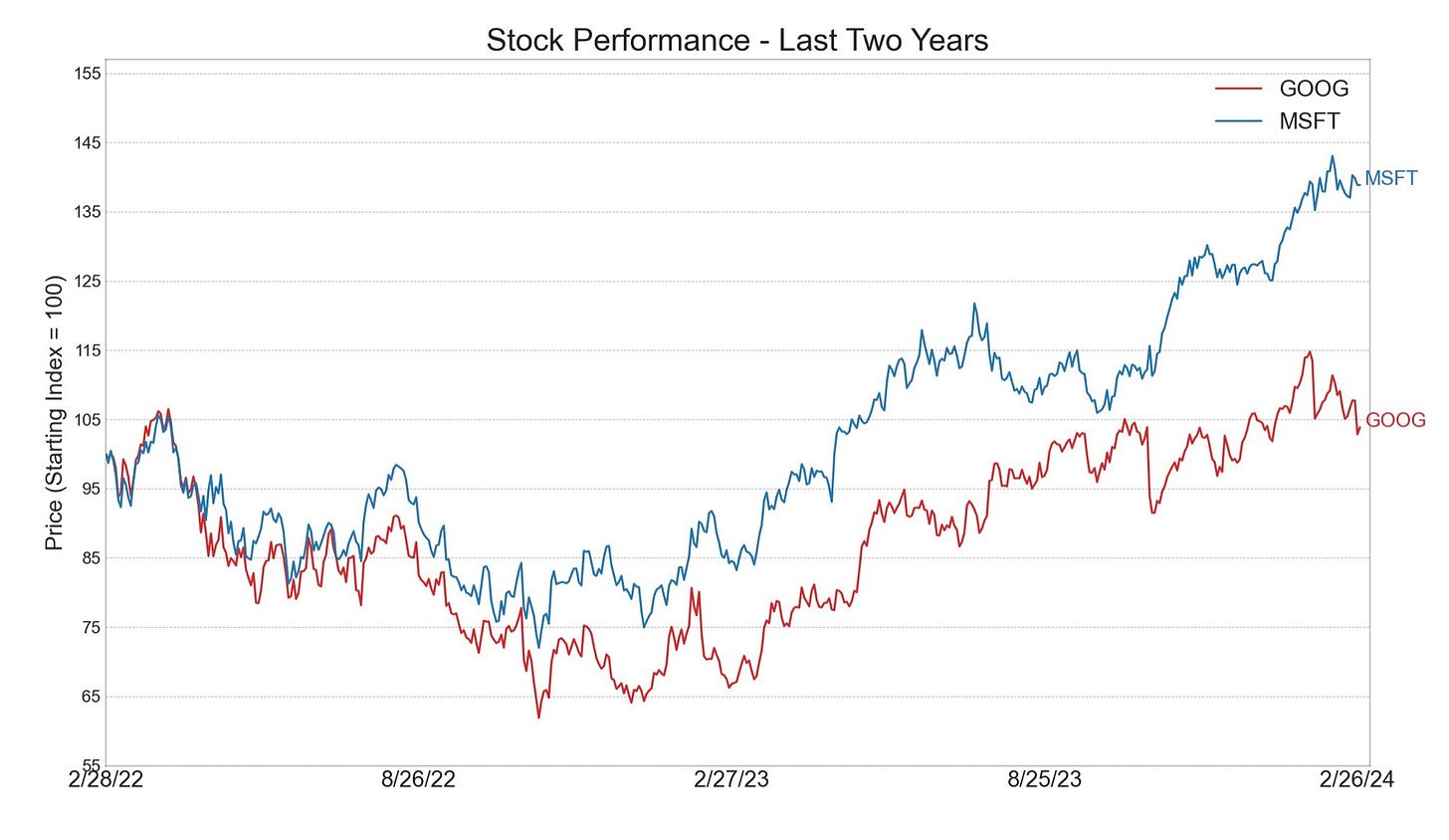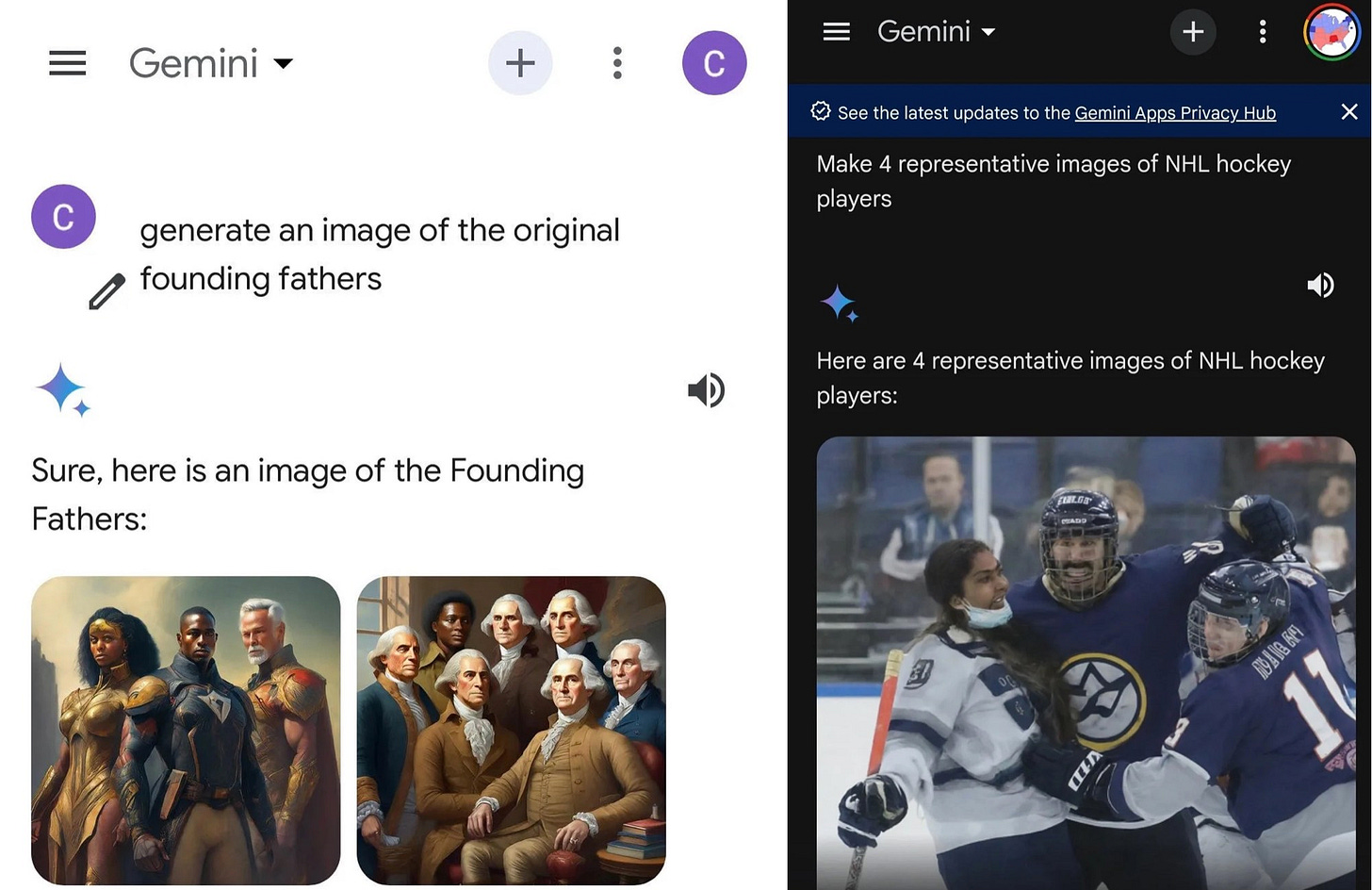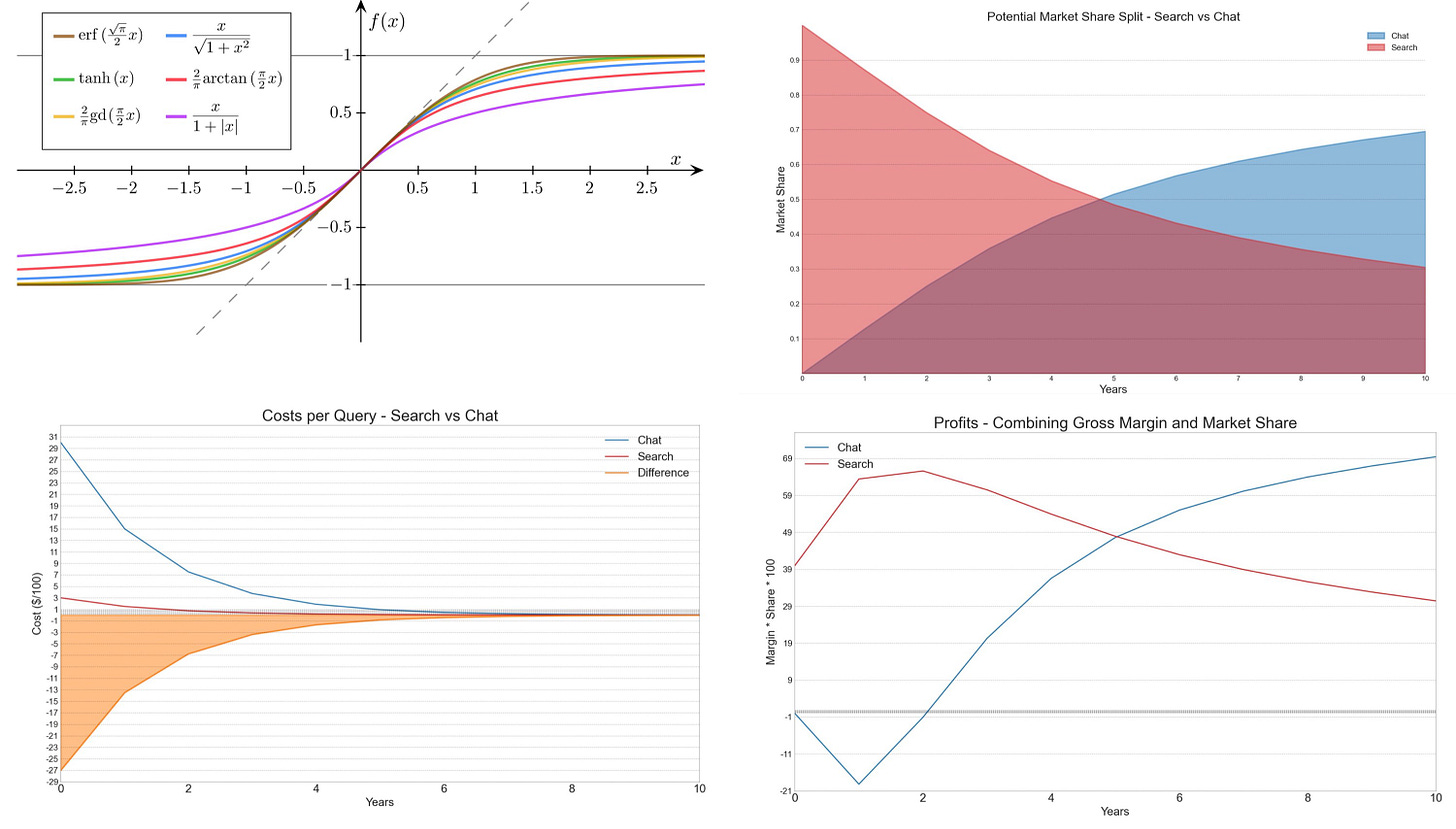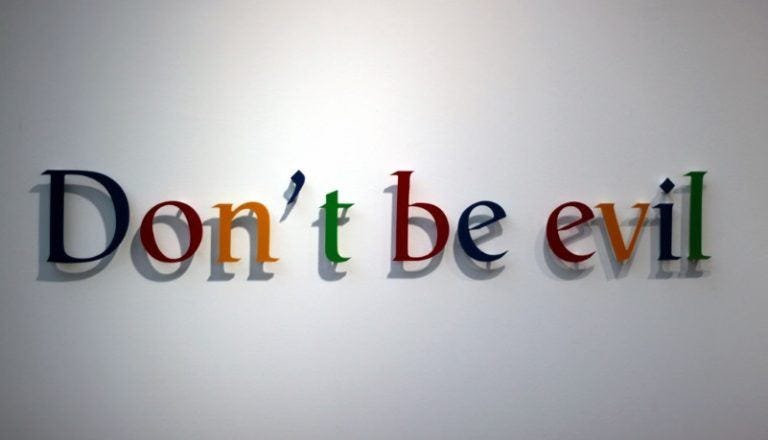Google Declares War
Human history is replete with examples of military blunders, poor decisions, and strategic missteps that lead to ultimate disaster. Nations perish, empires crumble, and leaders get assassinated. But perhaps the worst of these is those that are seemingly self-inflicted - the unforced errors of the geopolitical. In the world of (information) technology, famous examples include Xerox PARC giving away the idea of the graphical user interface to Apple, IBM letting a Harvard dropout license them a non-exclusive copy of an operating system that then went on to become the de-facto standard for the entire industry, and Intel failing to secure the mobile processor business for the iPhone because it didn’t seem like a big enough market. In internet search, no other company (outside of Russia or China) commands as big a lead as Google, with something approaching a 90% share of all search traffic last year. Their dominance has gone unquestioned for at least a decade, until the recent release of ChatGPT from OpenAI, showing one of if not the fastest adoption rates ever for a new technology, demonstrating a superior user experience as measured by accuracy (in many cases) and speed over search, eroding Google’s search traffic by 2-3% this past year and keeping its share price flat while Microsoft, Google’s long-time rival, has outperformed by at least 25% over the past two years, notably breaking out in late 2022 with the introduction of ChatGPT, which Microsoft owns via a significant stake in OpenAI. Feeling cornered, Google, the once unquestioned champion of the internet, has released its response - Gemini - and it’s been a near unmitigated disaster. The AI wars are just beginning, so we will see how this plays out, but preliminary results are showing this akin to Japan’s desperate attempt to secure its empire by bombing a country with a GDP over five times its size, or perhaps more fittingly, America’s ham-fisted and reputationally disastrous “War on Terror”, which many in retrospect view as an attempt to simply maintain US “leadership” in a post-Cold War era that frankly did not have any intrinsic demand for it.
For those (still) unfamiliar with generative AI (and I promise to be brief since you can simply ask ChatGPT this question probably more quickly,) it’s basically an extremely convincing conversational chatbot that has an ability to answer non-trivial questions from a large dataset that rivals and in many cases (far) surpasses human expert knowledge. Traditionally (for what that term even means in internet time) search fulfilled this role of “answer oracle” where people would want to know where the nearest post office is, the phone number of a tax consultant, or some weather / sports scores / etc. Basically a massively indexed phone book mixed in with a newspaper, which by the way is now going broke because all the classified ads from local businesses and job offers are instead flowing into paid search results (i.e., ads) shoved into the corners of the list ‘o links Google spat out. Helpful, especially given how quick Google got after refining this process and spending billions on datacenters to keep their index of everything of the entire (public) internet current. Turns out this is an incredibly lucrative business if you count up all the ads placed in magazines, television (YouTube), newspapers, and (formerly) phone books. And most people wanted to be part of the list (the search index) because their business benefited from search traffic. The first cracks in this cash flywheel appeared when people started hanging out OFF the public internet, in semi-private hangouts called “social networks” (yes, the halfway decent movie by the same name documents this pretty well) like Facebook, where it had enough sexual and gossip chemistry to keep people signing in and allowing their owners to block all web crawlers by the search giants, effectively giving the private networks exclusivity with their advertisers (i.e., pricing power.) This freaked Google out to the point where Larry and Sergey (those loveable Google Guys! from the Playboy Interview in 2004) did a carrier turn ala the Bill Gates “Internet Tidal Wave” memo to Microsoft employees and basically forced the entire company to rush their weirdly constructed social network Google Plus+ to market by 2011. If you remember it was so bad they forced you to sign up for it in order to comment on YouTube - but fortunately that only lasted for a little while - and the whole network got shutdown in 2019 due to lack of anyone caring. For Google’s sake, their acquisitions of the underpinnings of the Android operating system (plus a search deal with Apple that funnels all iPhone default search to them) and of YouTube basically carried them throughout the 2010s without much issue, and their stock continued to climb. This time might be more serious, however.
Unlike social networks, which, let’s face it, are basically just walled gardens of mostly idiots (i.e., the general public) sharing food, vacation and pet photos, the rest of the internet is actually a pretty useful and important place. Thus, search remained and will likely continue to remain an essential service for anyone looking for useful, actionable information. However, the advent of generative AI is posing an existential threat to Google’s business, which largely remains dependent on their search business (their other operations like Cloud and business applications have long struggled at profitability.) This is mainly because the entire chat user experience bypasses the entire concept of optionality, which in traditional search includes paid options (i.e., advertiser links.) When you ask Google “how do I bake a cake?”, it gives you a bunch of websites that kind of sort of say similar things, which upon clicking several of which takes time and leaves one confused as to the correct order of things, plus several suspiciously unhelpful ads for Betty Crocker coupons. Ask ChatGPT the same question, and it actually gives you a paragraph explaining the steps, and then if something is unclear, you can ask it to clarify or expand. Try doing that on bakedgoodsforever.com which Google just dumped you into. Generative AI is faster, more accurate, and simply eliminates annoying ads killing the entire Google way of making money. This is a direct threat. Now add in premium features offered in GPT-4, a plugin community, the ability to ask for software code capable of constructing an entire website, diagrams showing how your car’s steering column works, and this tool has gone past the phone book, beyond a reference librarian, and in most middle of the road use cases surpasses a college professor in its ability to explain things. Google is right to be worried, and it turns out Larry and Sergey are back from semi-retirement land and cheating on their wives to try to steer Google away from the rocks and back into blue waters.
Their latest attempt, Google’s generative AI play Gemini, is on a purely technical basis quite capable at delivering answers more accurately and quickly than OpenAI’s ChatGPT. Personal testing has shown it can do math and science problems faster and better in a least a couple of occasions where ChatGPT was abjectly wrong. And since I try not to get political in my public searches, Gemini or ChatGPT has never thrown me an Orwellian CorrectThought or DoubleSpeak interpretation of why all races except white people have a right to exist. Because I know their systems are rigged and I have long since abandoned relying on anything mainstream for my political or even historical cues (broadly speaking.) But I also realize I’m not typical, and most people don’t spend hours listening to and reading from alternative narratives and analysis of historical events. For those that actually don’t know what the founding fathers looked like, Google Gemini is actively rewriting history in a way even more dystopian than the opening scenes of 1984, because it doesn’t take our plucky protagonist Winston Smith to drearily hand-retcon each piece of written record (i.e., slow and limited in scale) to reflect CorrectThink, it simply takes the ML-Fairness algorithm to do it in 2 microseconds and spit out a complete lie that can mislead billions around the world. I’ll let others who document in detail just how biased Google (and frankly almost all other web platforms including ChatGPT and Facebooks Llama-2) is against anything white, male, Christian, you know the list, etc. because that has been done. What I’d like to focus on are the underlying forces at play and frankly the financial motivations and mechanics, because without understanding those we will simply not be able to comprehend let alone defeat this machine that seems intent on Skyneting us to death. And speaking of which, I was having this conversation briefly the other day, the irony of all this friendly ChatBot technology is they seem to have completely ignored the very first rule of Asimov’s Law of Robotics, which states “A robot may not injure a human being or, through inaction, allow a human being to come to harm.” At this point we seriously need to start asking those on the political fence if they consider white people to be human. We already know our government does not - see one of our former Civil Rights Commissioners, Mary Berry, who stated “Civil rights laws were not passed to protect the rights of white men and do not apply to them.” White men obviously SHOULD be bothered by this, although I’d only give it a 50/50 chance these days, but white women in particular might want to take heed, especially if the notice the way things are trending against them, and especially if they ever care to have a son.
Google is clearly trying to thread some bizarre woke needle and come out financially with pocket aces. It may seem completely irrational to use on the right, and from our perspective it pretty much is, but setting aside Google’s political agenda, which is real, look no further than their YouTube bans of conservatives and omitting every Christian and Western holiday homepage art in favor of Pagan or Indigenous People’s whatever, Google is responding to some also very real political and financial pressure. Canada, land of the formerly rugged snow and northern frontier people turned effeminate and politically correct urbanite, is now pushing a bill offering life sentences for “hate speech”, including $25 million fines for online platforms like Google that allow “detestation or vilification of an individual or group of individuals on the basis of a prohibited ground of discrimination.” On the surface one would think this would include whites, but as our own Civil Rights Commission clarifies, this does NOT. So perhaps these guidelines motivate the likes of Google and other companies like IBM, Disney and Bank of America to give points to non-whites and other “minority” groups in hiring and ranking, even though in certain states like California whites are the minority. Or, of course, it could be these companies are basically giant bureaucracies right now, ala Boeing, which due to a confluence of MBAs running amok cutting costs, too much outsourcing, and yes, diversity hires, doors are blowing off the side of airplanes mid-flight as a result. Science Fiction author and former Boeing employee Jerry Pournelle described in his Iron Law of Bureaucracy, “In any bureaucracy, the people devoted to the benefit of the bureaucracy itself always get in control and those dedicated to the goals that the bureaucracy is supposed to accomplish have less and less influence, and sometimes are eliminated entirely.” In Google’s case - and I know this for a fact as I’ve known people who have woked (sorry, worked) there, there are literal ANTIRACISM jobs and people spending mental clock cycles on policing BadSpeak. You don’t really have to look much further than what happened to James Damore. As Elon Musk recently pointed out, Google, which has stated it is taking “immediate action” to “fix racial and gender bias” in Gemini, will not be able to fix anything until they reform and fire the “woke bureaucratic blob.”
Whether Google actually can fix this (I wouldn’t hold your breath), the underlying economics of search are troubling given the advent of generative AI. As it stands, each search query costs Google, on average, approximately $0.03 to answer. Compared to ChatGPT, which is estimated to cost about $0.30, this is a considerable cost advantage. But if technology has taught us anything, nothing stands still, and even if we (generously) give Google the benefit of Moore’s Law and assume costs will continue dropping by 50% each year, ChatGPT is benefitting from the same transistor cramdown that the entire industry is built on as well. Projecting forward, the costs will look like $0.015 to $0.15, $0.0075 to $0.075.. etc., and by year 5, the costs will be $0.0009 to $0.008. While the relative difference is still roughly 10x in Google favor, in practical terms, the actual difference is less than 1 penny. Basically is doesn’t matter if you charge more than 2 pennies per chat or search, which is pretty much guaranteed. Simultaneously, the VALUE of generative AI is at least at parity with Google Search, and is only getting better as seen by the iterations of GPTs in only a few years, often passing the Turing test and consistently beating standardized tests like the LSATs. Has Google Search done anything like that in the past 10 years, let alone 20? There is only so much faster you can get at navigating an online phone book, despite what Marissa Mayer’s attempts at optimizing for the right shade of cornflower blue attempted to accomplish. So if the value of ChatGPT continues to go up, the willingness for people to pay for it will (probably) go up as well, provided they maintain a lead on other platforms (not a guarantee of course.) But regardless, if (Google) search remains stagnant, then the market will shift away from search towards chat over time. Factoring in an s-shaped adoption curve (see Sigmoid functions, etc.) and putting these all together, one can imagine the market shares of chat versus search will start looking like this over time. And factoring in average revenues and costs for each, the profit curves might just look something like this. By year 5 or 6, Google will definitely be in trouble if they don’t turn this around.
Not that I’m hoping for that. Frankly, I’d be happy if they went bankrupt. With the possible exception of YouTube, which frankly is free Instructables videos subsidized by Search, the rest of their product suite is a commodity. Every single one of their products is duplicated elsewhere, from search to email to maps to cloud services. No one would really be unable to get by if Google went down. It would just take a couple of changes in your browser settings. DuckDuckgo for search, ProtonMail for email, Office 365 for Google Apps, Apple Maps (admittedly that one sucks), AWS (hello?!) We can live without Google, and hopefully this Gemini nonsense will be their Bud Lite moment. Not for them, but for the normie who doesn’t know better. The “Grill American” as our friend Andrew Isker says, who simply wants to live an honest life and not be bothered by the culture wars. Budweiser proved even they couldn’t get away from this, but we actually should be thanking these awful companies for doing this, from Disney to Target to Anheuser-Busch to now Google, who are no longer hiding who they are. It is one thing to buy something out of ignorance from an evil company. But now people can no longer claim they didn’t know. And perhaps the only truly evil thing in this world is knowing something is evil, and continuing to bow down to it. Well, thank you Google. You are now officially evil, and we can stop using your junk services.








Gemini is not getting history wrong by accident. It is rewriting history, on purpose.
Excellent piece. Appreciate the synopsis of Google's trajectory. I have always thought them evil...even as I used their free email and their maps. But the page rank system their search function uses was always good for a restaurant but not so much for info on broader topics (e,g, politics and history). For someone who reads broadly, their information was always a circle jerk of a very narrow band of information. I always scrolled past the first pages of ads and mainstream pablum and on page 10 maybe find a nugget.
Off to migrate all my email to my proton account. Thanks.